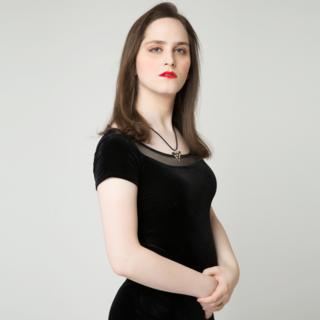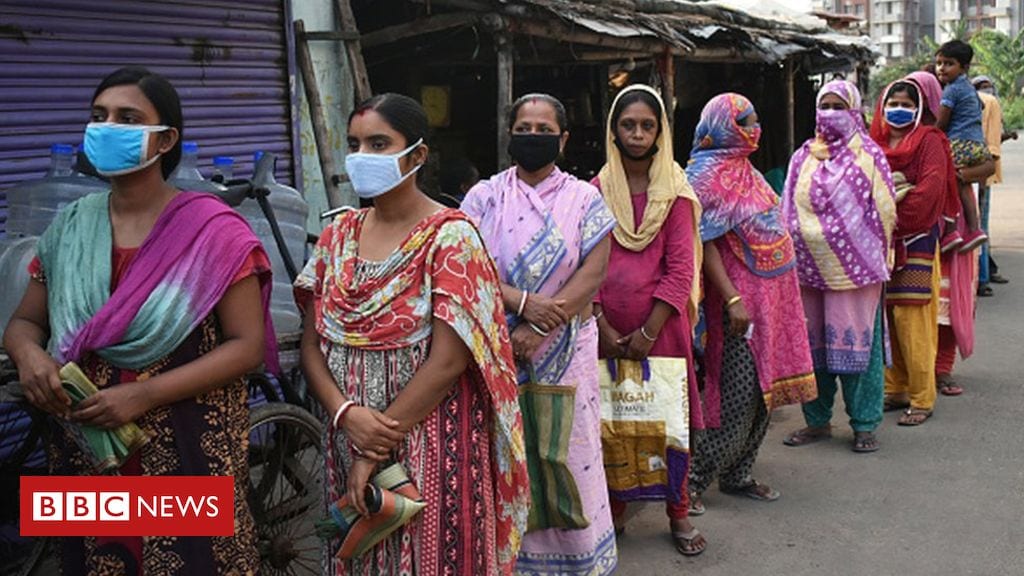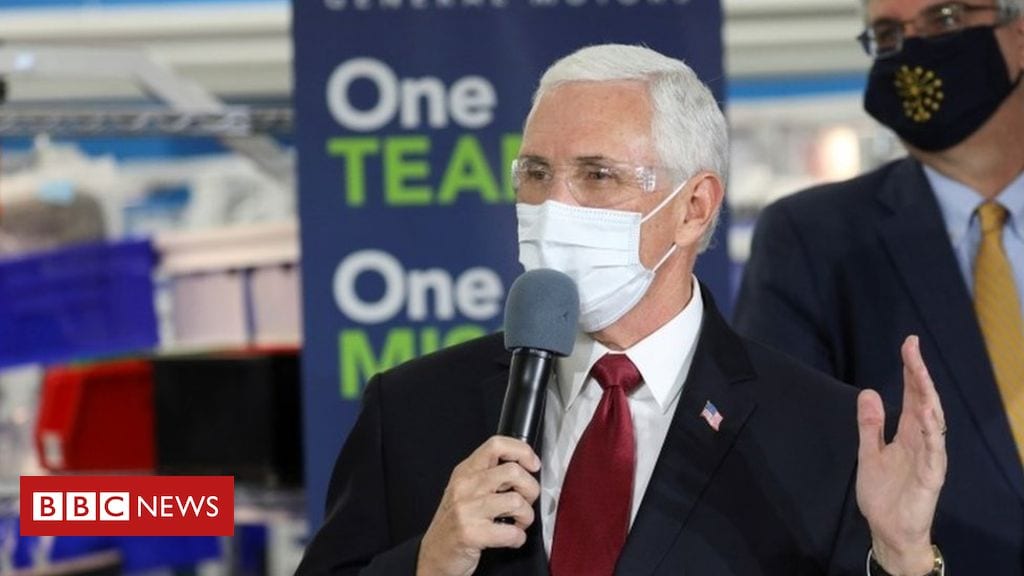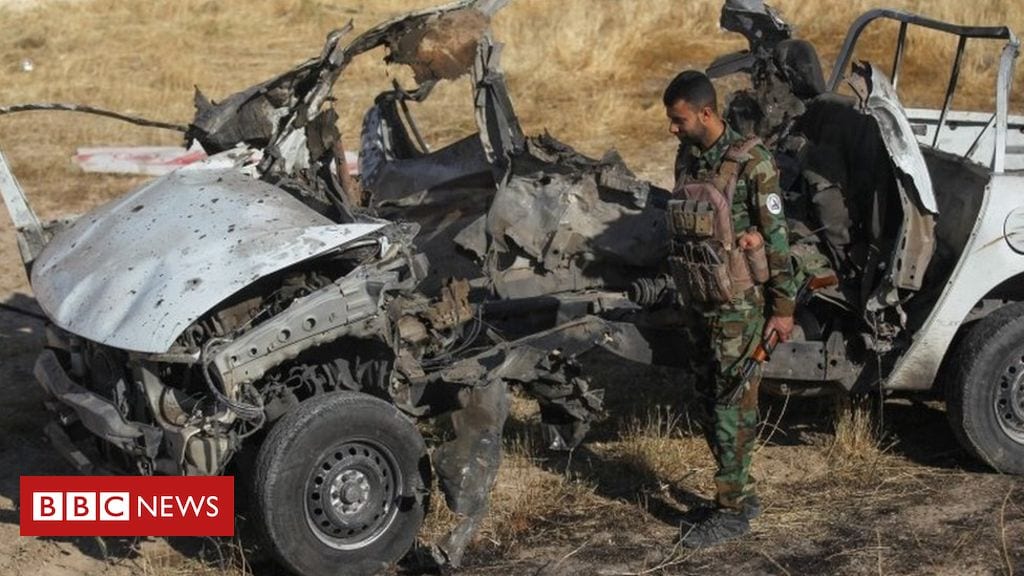[ad_1]


When Abby Stein came out as trans, she sent shock waves through the ultra-Orthodox Hasidic community. A direct descendant of Hasidic Judaism’s founder, The Baal Shem Tov, Abby’s parents considered her their first-born son and a future rabbi – but she was adamant that she was a girl.
My dad is a rabbi, and having a son was a big deal. He would always tell me that after five girls he had almost given up on having a boy, and how much it meant to him. I almost felt bad for him throughout my childhood – a feeling of: “I’m so sorry, but I can’t give you what you want.”
I didn’t know there were other people like me, but I knew what I felt – I just saw myself as a girl.
I sometimes wish that I’d had a teacher who was transphobic, because that would have meant I knew trans people existed. In the Hasidic community they simply never spoke about it.
What kept me sane during my childhood was my imagination.
When I was six I started collecting newspaper clippings about organ transplants – lung, kidney, heart and so on. In my mind, the plan was simple: one day, I would go to a doctor, show them my impressive collection of newspaper clippings, and they would perform a full body transplant, turning me into a girl.
When I got a bit older, I realised that wasn’t realistic, so I came up with my next idea, which was to ask God. I grew up in a very religious family, and we were told God could do anything.
So, aged nine, I wrote this prayer that I said every night: “Holy creator, I’m going to sleep now and I look like a boy. I am begging you, when I wake up in the morning I want to be a girl. I know that you can do anything and nothing is too hard for you…
“If you do that, I promise that I will be a good girl. I will dress in the most modest clothes. I will keep all the commandments girls have to keep.
“When I get older, I will be the best wife. I will help my husband study the Torah all day and all night. I will cook the best foods for him and my kids. Oh God, help me.”
The Hasidic community is the most gender-segregated society I’ve ever known or heard about – and I have researched gender-segregated communities quite a bit.
There are even some Hasidic communities in upstate New York where men and women are told to walk on separate sides of the streets – it’s the closest thing that exists now to a 19th Century Eastern European Jewish shtetl (village).
Find out more
From the second you start preschool, the sexes are totally separated. Boys and girls are told not to play together.
Even though in Jewish law there is no prohibition against hugging or holding hands with your sister or mom, when I was growing up it was still considered something Hasidic boys shouldn’t do.
I never saw anyone naked. I did not know that my sisters and I had different body parts down under. It was never discussed.
Even so, when I was four years old I had this intense feeling of anger towards my own private parts. They didn’t feel like part of me. It was an extremely strong feeling that I cannot explain to this day.
At that time, my mom would prepare the bath and let me play with the toys in the bathtub.
She used to keep a small tray of safety pins in the cabinet by the sink, so I would sneak out and take these safety pins and prick this one very specific part of my body.
It’s not something that I encourage anyone to do, but I wanted to make it feel pain, almost like punishing it.
One time my mom walked in on me as I was doing this and she freaked out. I don’t remember what she said exactly, but it was a very clear message that: “You are a boy and you’re supposed to act like one, and don’t ever say anything that might challenge that.”
At the age of three, Hasidic boys have their first haircut, called the upsherin, which is when you get the side curls, or payos. That’s the first kind of physical manifestation that indicates to the world – and to yourself – that you are a boy.
I did not want to have that haircut. I was throwing a temper tantrum for hours. “I want to have long hair! Why can my sisters have long hair and I can’t?”
At 13, I had my bar mitzvah, which is when a boy becomes a man – so that was very tough.
I have some positive memories of it, like having a party and getting lots of gifts, but the concept of: “You are now a man,” was really challenging. It was a celebration I felt I shouldn’t be having.
If you want to get a sense of how isolated the Hasidic community is, until I was 12 I thought that the majority of people in the world were Jewish and that the majority of Jews were ultra-Orthodox – neither of which is correct.
Take any aspect of pop culture of the 90s – Britney Spears, or Seinfeld – I didn’t even know it existed.
I didn’t speak English until I was 20, just Yiddish and Hebrew. At school we just learned the ABCs and how to write our names and addresses, and that only lasted from fourth to eighth grade, for an hour a day – and even that hour was split between English and maths. Maths only went up to the level of long division, and we never touched any science or history, outside of some Jewish history.
The expectation, growing up, was that I would work as a teacher or rabbinical judge.
If you lead a synagogue or teach at a school in the Hasidic community, you’re also called a rabbi, regardless of whether you have been ordained or not – but I actually wanted to be ordained. There were several reasons why.
Part of it was that I wanted to know exactly what I was rebelling against – my struggle with my identity as a woman meant I questioned everything I was being told about religion and God. At school, they called me the “kosher rebel”.
At the same time, another part of me was hoping that if I really gave my entire self to it, all these feelings about who I was were just magically going to go away.
When I was 16, I immersed myself in Jewish mysticism, called Kabbalah. That was where I first came across a religious text that justified my existence.
In a 16th Century study of human souls called The Door of Reincarnation, I read: “At times, a male will reincarnate in the body of a female, and a female will be in a male body.”
It gave me hope that maybe I wasn’t crazy.
Even though I knew I was really a woman, I had an arranged marriage like everyone in the Hasidic community. You’re born, you eat, you breathe, you get married at age 18.
My parents set it up. My bride had to come from a rabbinical dynasty and adhere to the same dress codes, which in my family are extremely unusual – so much so that there were probably only 20 to 50 girls in the entire world that were acceptable matches.
Fraidy and I met for about 15 to 20 minutes, and then we were engaged. We didn’t meet again until our wedding, a year later.
At first, things went well. I liked her, she’s an amazing woman, really smart and loving. We had great conversations, we never fought. As far as arranged marriages go, it was perfect.
It was the first time I had lived with a woman, which felt good. She was quite fashionable, and when we went shopping it was a way of putting myself in her shoes and thinking: “Oh, what would I get?”
Hasidic men wear black and white clothes with almost no choices whatsoever. Women get to explore a bit more, although it has to be modest, and certain colours, like red and pink, are off-limits.
But when Fraidy got pregnant, I really struggled. It was as if everything – gender, religion, my family, my son – was collapsing in on me and punching me.
It was like gender was hitting me in the face, it was just so present – what kind of clothes we were going to buy for the baby, whether we were going to do a circumcision on the eighth day – it was impossible not to face it every second.
My son’s birth was the final, knock-out punch. I wanted to give my child the best life possible, but how could I, if, by the age of 20, I didn’t even know what “a good life” was?
So I went online.
I knew that there was a place called the internet where you could connect with people and find information. There was such a strong focus on telling us how not to connect to the internet by mistake that I had learned about Wi-Fi and Google.
I borrowed a friend’s tablet and hid in a toilet cubicle at a shopping centre that had public Wi-Fi.
My first search was whether a boy could turn into a girl – in Hebrew, I didn’t speak English at the time – and on the first or second page of the results, there was the Wikipedia page about transgender people. That was the first time I learned the term and realised there were other people who felt like me.
Imagine struggling with something, whether it’s physical or emotional, and you go to a doctor or therapist who for the first time in your life tells you: “Oh, what you are feeling is called XYZ, and here is what you can do to feel better, to find your place in the world.”
Another amazing discovery was that there was a community of people online who had left ultra-Orthodox and Hasidic communities and had not just survived, but thrived.
A few weeks later I stopped being religious. I don’t think it was obvious to many people because I was still living a religious life outwardly, but I stopped observing – for example, I started using my phone on Shabbat… anything that people wouldn’t see.
My wife was the first person in the community that I spoke to about it, about six months after our son’s circumcision.
I didn’t leave my marriage. For a year, we tried to save it, but my ex was forced to leave me by her family. They took her away, quite literally. I lived in our apartment for the next few weeks, hoping that she and my son would come back.
Then, for a while, I moved back in with my parents. When I came out to my dad as an atheist, he said, “No matter what happens, you are still my child.”
Once I realised that there was no way for me to live with my son full-time, I decided there was nothing left in the community for me.
Leaving is like emigrating – not just to a new country, but a new continent. It’s a new century. It’s time travel!
Suddenly, I was in a world where there were unlimited options for food and clothing. I bought my first pair of jeans and a red-and-white checked shirt. I always sucked at male fashion.
Language was the biggest obstacle to overcome, because when you grow up in New York, people expect you to speak English.
For three years I didn’t speak to anyone in my family about my gender. I came out to my dad on 11 November 2015, a few months after starting hormone therapy.
It took my dad about an hour to even grasp what I was telling him, and that was thanks to certain religious texts that I showed him – one of which was the passage about male and female souls that I had discovered when I was studying Kabbalah, Jewish mysticism.
Image copyright
Netflix
Abby has a small part in the Netflix drama, Unorthodox
My dad admitted that trans people exist, which was quite impressive, because a lot of fundamentalist religious communities don’t.
Then he told me: “You need to have a person who has Holy Spirit, in order to be able to tell you if you are really trans.”
My reaction was: “I think two therapists and a doctor are good enough.”
But he obviously disagreed, and a few minutes after that he pretty much told me that he would never talk to me again.
At that moment, it really hurt. But the reality was that by the time I came out, it was already three years after I had left the Hasidic community. I had enrolled in college, and was a member of some extremely progressive and amazing Jewish and queer communities – so I didn’t lose any friends and my life wasn’t upended by the rift with my family.
I still text my parents every week – my dad, my mom doesn’t even have text messages – and the day that they are ready to talk to me, I will talk with them.
My ex-wife was not allowed to speak to me from the second we got divorced. My son is the love of my life.
I like to focus on the silver lining: instead of thinking about the 10 siblings who don’t speak to me, I focus on the two who do. Anyway, most people I know nowadays outside the Hasidic community only have two siblings, if that.
Life is actually better than I could have ever imagined. I used to struggle with depression almost non-stop. Since I came out, I haven’t had a day of waking up and feeling that there’s no reason for me to wake up. Before I transitioned, there were days that I felt like that.
Being out as ourselves, being trans, being LGBTQ, is something that creates a life worthy of celebration, not just worthy of living. It’s beautiful.
I was the first person in the Hasidic community to come out as trans, but there have been quite a few people since, and obviously, I’m being blamed for that.
I definitely think I can take some credit for it – the Hasidic community is never going to be the same again.
Abby Stein’s autobiography is called Becoming Eve: My Journey from Ultra-Orthodox Rabbi to Transgender Woman
Photographs courtesy of Abby Stein and subject to copyright
Illustrations by Naomi Goddard
You may also be interested in:
Image copyright
Alamy
Chaya, not her real name, is an ultra-Orthodox Jewish woman who is gay. Here she describes her struggle to accept her sexuality, and why she has to keep it a secret from those who would make her choose between her identity and her family.

















